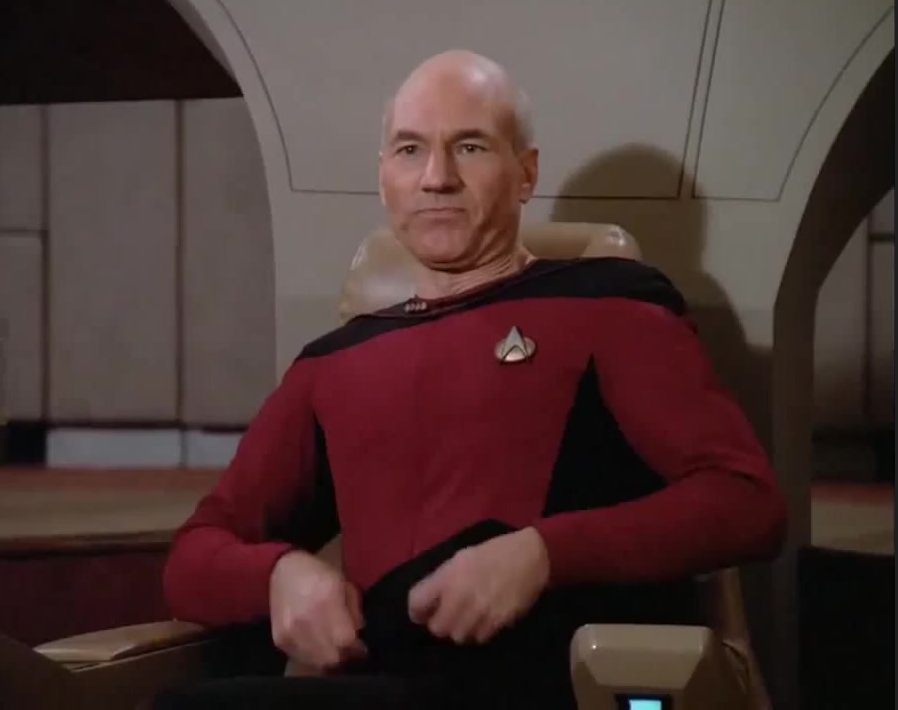Serving a god or oath seems inherently different than knowing about religion.
Seriously. How hard is this to comprehend? “Communing” with your magic sky daddy is “wisdom” and believing irrefutably that you are His will incarnate is totally “charisma”, but memorizing lore of multiple religions and the fiddly details of all manner of adjacent facts is completely “intelligence”-based. I mean, fucking duh.
deleted by creator
Most paladins and clerics will have proficiency in Religion specifically to compensate for this. As a DM, I also like to give clerics and paladins advantage on rolls having to do with their specific religions or gods as well.
That being said, there’s a difference between being in tune with your God versus memorizing lists of rules and historical facts related to your religion and other religions. Like, I’m an atheist, but I’ve read a lot about religions, yet there are lifelong Catholics I know that don’t know Catholicism is a type of Christianity. They believe it to be a completely separate religion. There’s also a lot of interesting stories in the Bible that I’ve referenced, but they’ve never heard of in spite of many Christians considering the Bible to be the backbone of their religious beliefs.
Not that that translates directly to a D&D cleric or paladin, but it goes to show that being a part of a religion isn’t inherently linked to knowing stuff about it.
Aren’t religion checks more about straight facts about various religions?
Traditionally in systems like D&D and Pathfinder, Wisdom is more representative of inherent common sense, awareness, and intuition and Intelligence representative of the ability to reason and learn. What actually represents accumulated knowledge is your bonus in the related skill, which is a combination of ranks (representative of time spent training/studying that skill) plus inherent bonus (in the case of knowledge, usually Intelligence since Int is representative of your ability to learn).
Some skills end up seeming like they should be a bit of both though. For example, Healing/Medicine requires knowledge of anatomy, ailments, treatments, etc (which would be Int aligned) but actually diagnosing and using it requires perception to recognize symptoms and often some intuitive choices about how best to treat ailments (which is more Wisdom aligned). It’s simpler to just pick one, and often Wisdom is chosen to avoid too many things being Int.
I always interpreted it as knowledge of religion in general. You can be faithful to a god, but knowing what rites, edicts, ceremonies, rituals, holy texts, and even history of other religions is separate from that.
Like, if you are Catholic, does that mean you know all about other religions like Judaism or Islam?
Shit, tons of religious people don’t know much about their own religion.
Which is why they fail their religion checks when questioned. They are however good at passing deception checks
Yeah exactly. And considering clerics are devotees of specific deities it’s not like they’re going to be experts outside of it. As a DM I assume clerics have a firm understanding of their god. You don’t have to roll to know anything I expect an ordained minister to understand about them. But just like I don’t expect a priest of Iuppiter to understand Cybellian rites or Saturnian prayers you’re shit out of luck about questions not relating to your god.
And in that vein basic questions about local religion should have a low dc, but cultural distance can increase it. That priest of Iuppiter may have reason to know about other deities in their region even secret ones, but knowing jack shit about Shiva is academic to them. Knowing anything about Zoroastrianism is on par with knowing history to them. They likely know a bit about Ra and Osiris, but only because those are basic facts about a significant nearby culture’s religion.
All the advantages that being a cleric provides here should be represented in the form of proficiency. But you aren’t studying this shit, you’re deepening your connection to your deity.
That said I do think there’s room for an int based holy caster in something like pf2. A religious scholar rather than cleric
If you’re a Catholic cleric you should. Comparative religion and the study of other faiths and faith traditions is essential to seminary studies as well as the practical education of the ordained.
Yeah, like the proficiency represents training and study, but an Int (religion) check usually involves knowledge of deities, mythology or symbology. That said, you might rule that a practical application of that knowledge, such as how to perform ceremonial rites, might constitute a Wisdom or Charisma check instead.
Something I’ve always liked about White Wolfs d10 systems is the ability to roll a skill against any attribute depending on situation.
If I’m rolling to determine knowledge of religion, int+religion.
If I’m rolling to verify I’m performing a ritual correctly, wis+religion.
If I’m rolling to dodge the advances of the local priest, dex+religion.
The issue isn’t really there, but that it’s also the check for knowing about your own religion.
DMs: if a character wants to know something about their own religion, a good solution to this is to just tell them, rather than requiring a check (or if you want the group to make checks for something obscure, give a bonus or a lowered DC to someone if they’re a member of that faith.)
Never met a religious person who didn’t know anything about their religion?
It was quite a cultural shock for me when I first met Americans vehemently claiming that Catholics aren’t Christians.
Tbf, Catholics used to say the same thing about Protestants.
Probably how the Orthodox felt after the great schism.
You mean all of them?
In a fantasy setting I would actually expect a religious person to know a thing or two about their religion. Only in a fantasy setting though.
Right, but… while the requirement for INT supports “cleric who doesn’t know anything about their religion” it also makes it significantly harder to play “cleric who does know something about their religion” - which probably should be more viable than “the wizard happens to know all this stuff randomly”
I was raised Mormon, and had always been taught that if you get to the highest heaven, you’ll become a god and make your own world. Only after I left did I find out that that’s not actual doctrine and comes from taking something that’s supposed to be a metaphor literally. And any details about the church that look bad aren’t going to be repeated by mormons, so mormons tend not to know about them.
It mostly has to do with remebering things about your religion. Wisdom i can maybe see but charisma is defintely not - and the checks are the same across all classes too which is another important thing
Charisma is for making your own religion.
Remembering things is the primary purpose of the check, but sometimes how you’re applying it might require an alternative skill check to make sense. Here are some examples (from https://rpgbot.net/dnd5/characters/impractical-skill-checks/ ):
Wisdom – Consoling and counselling a creature through a crisis of faith could be done with a Wisdom (Religion) check. Charisma – Proselytizing for a faith makes more sense as a Charisma (Religion) check than a Charisma (Persuasion) check.I think the second example would do better as Charisma (Persuasion), with a situational advantage for it being specifically preaching
Religion checks are about recalling knowledge, which is intelligence. It’s already a severely neglected stat, it doesn’t need to be made worse for the sake of making clerics more SAD.
INT is a pretty powerful stat if your DM has done a lot of work to put lore into the world and then has plots that rely on it - and it’s pretty good for monster knowledge checks. At the right table INT is probably the most important stat to have!
Having said that WIS covering perception means it needs no help.
The solution to sad clerics is to just assume they know things it’d be sensible for them to know, without a check needed, and reserve Religion checks for stuff that they wouldn’t know, like “the stats of a mummy” or “the rites of Azmodeus”
What you’ve got here is the difference between an ethical person, a good leader/prophet/pastor, and a theologian/liturgist.
It’s the difference between being a baseball player and being the guy who develops a better system for the quantitative analysis of baseball players.
With that said, characters should automatically know the basic rules of their own religion without having to roll, unless they’re remarkably ignorant. Rolls are for knowing about obscure cults, deciphering ancient inscriptions, or negotiating with extraplanar beings, not for trying to remember whether or not you’re supposed to love your neighbor.
It was clearer when the skill was called Knowledge (Religion), IMO. Same logic applies tho, it’s about knowing stuff so int makes sense.
Intelligence checks are a measure of your knowledge retention about a topic. Worship in the face of a lack of understanding is literally part of Christianity.
It’s maybe a problem that everyone assumes fantasy religion should be based on modern Christianity…
Checks are only supposed to be for things there is a possibility for failure for. So a Cleric of Pelor probably wouldn’t need to roll to recognize a symbol of Pelor or to know about specific Rites of Pelor. Knowledge(Religion), and later Religion(Intelligence), would be for general knowledge of religions or more esoteric religious knowledge. Having Proficiency in Religion shows that they had studied it, but not all Clerics would be scholars that pursue even further knowledge of the subjects.
Couple that with the ability tied to skills in 5e are suggestions, and the checks absolutely can be altered depending on the situation. Religion(Wisdom) would be perfectly in-line for a Cleric to make if that would make more sense for the roll.
Well 5e is more or less a basic version of 3.5/d20 system, so there are lots of things that no longer make sense after you gut the rulebook. 3.5 had skill ranks. Clerics started with a bunch of ranks at 1st level and then would continue to buy ranks in religion every level, and would be much better at related knowledge checks than an unranked 18 Int wizard in no time. Knowledge skills relying on Int makes sense. Having a skill system that no longer takes into account character life choices and experiences, does not. I’d really like to see the solution to these problems be to add back rules rather than further dumb things down by making every class centred around a single stat. Despite its flaws, 3.5 had a lot that is sorely missed.
You can be wise, observant and faithful all you like, but your personal conviction and interpersonal skills aren’t going to help you recall obscure holy texts purely from memory.
Zeus would answer to CHR
It’s wisdom in the system I play.
In 5e, a religion check isn’t to see how well you commune with your God. It’s how well you know any given god’s traits, domain, followers, plane, etc.
Thats why we have society and lore skills.
That’d be 5e’s History and Arcana, respecitvely.
I’ve gone back and forth on the way 5e does it. Making it simple is nice for newer players (fewer choices, those picks are broader). I still prefer 3.5’s big granular list. Not sure how Pathfinder compares.PF1 had basically the same giant list as 3.5, but PF2 simplified things to a large degree. That’s where the aforementioned society and lore skills come from.
IMO, religious checks should be inverse intelligence checks.
IE the higher your int, the more likely you suck at religion.
Intelligence is just knowing things and being able to process things, so in theory knowing about religion would be intelligence, however in religion knowing the *significance* of things is much more important, so it should really be wisdom…
Low intelligence may mean you follow blindly, but ask the average religious person the reasoning for The Great Schism and they’ll probably pull a blank. Ask an irreligious trivia expert and they’ll probably be able to tell you about how it was a disagreement over some traditions and the powers of the pope and who it should be which resulted in Christianity splitting in two in the 11th century, but it would take wisdom to know why it was significant, and why Catholics/Orthodox have historically disliked each other less than either/Muslims, along with a bunch of other useful contextual information which is lost when regurgitating facts
That’s not even true. Highly intelligent people may feel it’s all bullshit, but a lot of highly important scientists were clergy. Hell often tracking the stars, reading, writing, pharmacology, medicine, and math were the responsibilities of the priestly class in ancient religions. Modern genetics was discovered by a monk. The pope currently has astronomers.














